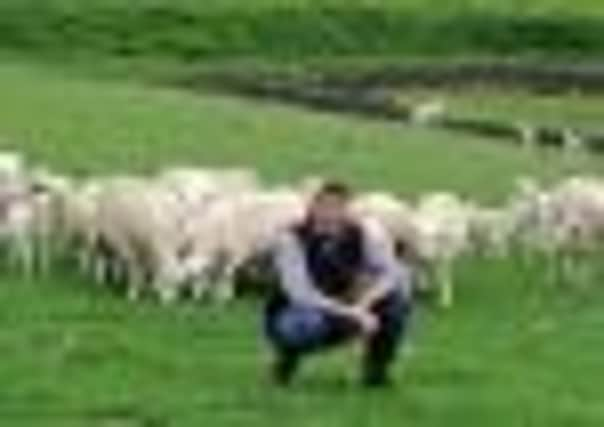Valuable lesson in saving time, money and effort


And although not all upland farmers are in a position to follow his example, they are being invited to consider its lessons.
So 40 of them turned up at his Quarry Farm, at Westerdale, near Castleton, in the heart of the Moors, for the launch of the Yorkshire Uplands Project – a brainstorming of shared problems through five ‘focus farm’ teams, organised by EBLEX.
Advertisement
Hide AdAdvertisement
Hide AdSteve Dunkley, regional EBLEX manager, told the gathering: “Beef and sheep can still be profitable but you may need to think about changing your system.”
The turning point for Mr Findlay was 2001. His father was beginning to think about retirement, but the farm – pasture, kale and moorland grazing – was still a seven-day job for two until half the sheep had to go, because of overcrowding caused by the movements freeze. They decided to keep sheep numbers lower but increase the beef herd and in the course of the relaunch, they did a deal with their straw supplier, an arable farmer near Redcar, to take the cattle over winter.
The spare cattle housing at Quarry Farm has become the centre for health checks and some intensive feeding for 2,000 bought-in store lambs a year.
The farm’s home flock used to be 1,000 Swaledale ewes before FMD but is nowadays down to 380 various.
Advertisement
Hide AdAdvertisement
Hide AdMr Findlay has been crossing in the Easycare gene, originally from Wiltshire Horns, so most of the animals now do not need clipping.
One way and another, he has cut the work to the point he can handle most of it alone and he and his wife, Polly, have added a substantial honey and beeswax business to the farm’s range.
Bed and breakfast for a suckler herd of 90 for six months works out at about £180 a head. But that pays back. Mr Findlay reckons he has cut tractor time – on growing forage – from 1,000 hours a year to 100, for example.
According to David Lyth, an ADAS consultant brought in for the farm focus project, Quarry Farm’s beef costs are now actually lower than average, if a head farmer’s time is valued at £12 an hour.
Advertisement
Hide AdAdvertisement
Hide AdMr Lyth said his action plan included checking the farm for deficiencies in trace elements – especially sulphur, which Yorkshire grass is missing badly since Drax cleaned up its act.
Mr Findlay’s home-grown lamb sells at a premium, under the Seven Hill Farmers brand. He has given his consultants something to think about this year by weaning most of his lambs early, so he did not have to send them up to the moors with their mothers “and lose 10 per cent in roadkill and so on”.
They went independent, in his in-bye pastures, at just eight weeks.
Paul Robinson, from Thompsons of York, said the extra costs in feed should come back in weight gain – and there were other advantages to early weaning.
Advertisement
Hide AdAdvertisement
Hide AdAndy Barber, of Clevedale Vets, said there were a lot of health issues to watch but so far all was good.
Meeting venues and dates
PROGRESS on all the Quarry Farm issues will be reviewed at an open meeting in autumn.
Launch meetings at two more of the ‘focus farms’ in Yorkshire are due on July 27, at Ripponden, Calderdale, and July 28, at Rhylston, Skipton.
And EBLEX will be organising all-day workshops on five issues of common concern – selection for slaughter; handling systems; beef nutrition; bull and ram assessment; and grassland management.
Call 0870 609 1840 or email [email protected]/